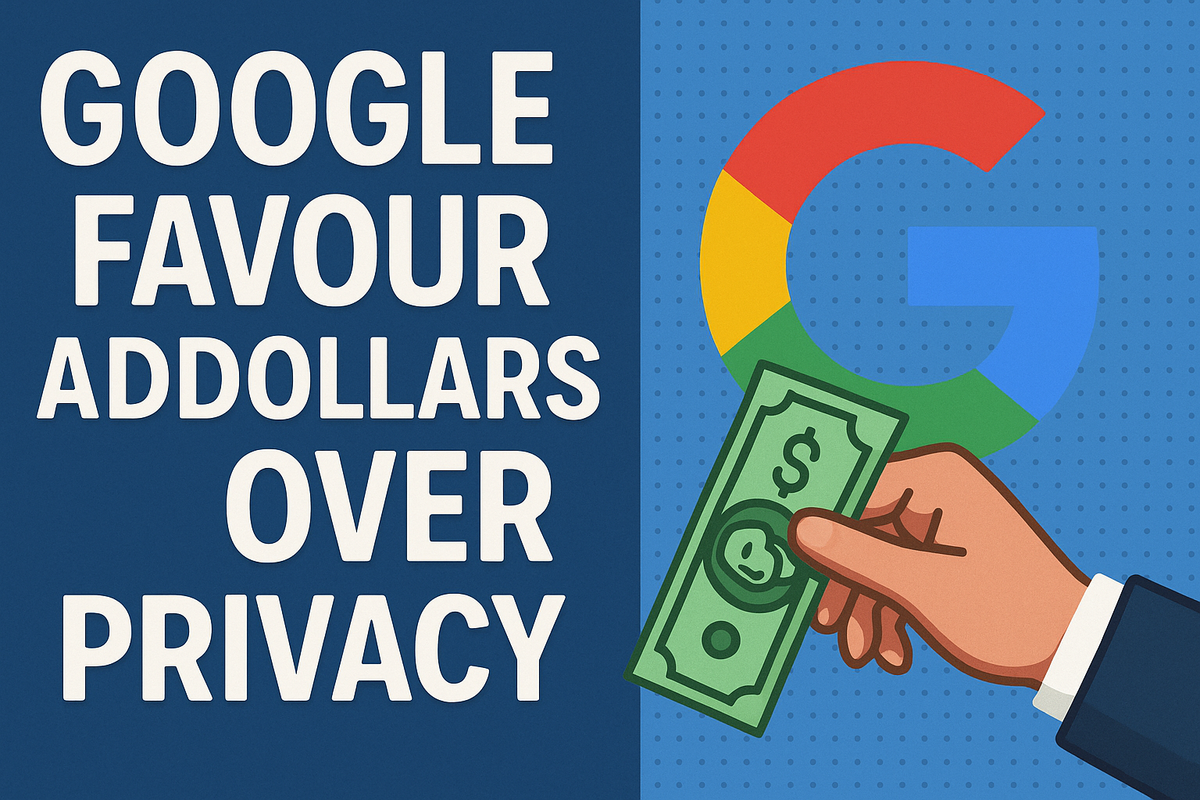Is Google Choosing Ad Dollars Over User Privacy? The Cookie Controversy Explained

Google Chrome’sided with advertisers—and your data is still on the menu.
In a stunning reversal, Google announced it will not phase out third-party cookies in Chrome—the world’s most popular browser. This decision comes amid antitrust battles and growing scrutiny of its ad empire. Why did Google backtrack, and what does it mean for your privacy? Let’s dive in.
🕵️♂️ The Privacy vs. Profit Problem
Third-party cookies have long been criticized for enabling invasive tracking. Here’s why Google’s U-turn matters:
- 66% Dominance: Chrome holds 66% of the global browser market—far outpacing Safari (19%) and Firefox (3%). Most web users remain exposed to tracking.
- Data Goldmine: Third-party cookies let advertisers build detailed profiles of your habits, health interests, and finances (per the EFF).
- Google’s Double Role: As the #1 ad tech company, Google profits from targeted ads. Killing cookies would disrupt its $237.9B ad business.
- Broken Promises: In 2020, Google pledged to eliminate cookies by 2022. Now, even a 2024 compromise (opt-out prompts) is scrapped.
✅ The (Abandoned) Privacy Sandbox Solution
Google initially proposed alternatives to cookies through its Privacy Sandbox initiative:
- ✅ Tracking Alternatives: Tools like Topics API would let advertisers target broad interest groups instead of individuals.
- ✅ User Control: Planned settings to block third-party cookies while allowing “trusted” partners.
But critics argued Privacy Sandbox still let Google monopolize user data. Regulators called it “anticompetitive,” and advertisers resisted change.
🚧 Why Google Folded: Challenges & Backlash
Three roadblocks derailed cookie elimination:
- ⚠️ Ad Industry Pressure: “Divergent perspectives” (as Google’s Anthony Chavez put it) from publishers and ad firms who rely on cookies.
- ⚠️ Antitrust Heat: A U.S. judge recently found Google “engaged in anticompetitive acts” with its ad tools. Killing cookies could further inflame regulators.
- ⚠️ Technical Hurdles: Replacing cookies without crashing the $600B digital ad market proved complex. Even Apple’s Safari struggles with balance.

📉 Final Thoughts: A Win for Ads, Loss for Privacy
Google’s decision signals:
- ✅ Short-Term Stability: Advertisers avoid chaos, and Google maintains its ad dominance.
- 📉 Privacy Setback: Chrome users must manually block cookies via settings—a step most won’t take.
- 🚀 Wild Card: If Google loses its antitrust case and sells Chrome, a new owner (like OpenAI?) could revive cookie-blocking plans.
What’s your take? Should browsers prioritize user privacy over ad revenue—or is targeted advertising a necessary evil?
Let us know on X (Former Twitter)
Sources: Matt Binder. Google Chrome won't phase out third-party cookies after all, June 2024. https://mashable.com/article/google-chrome-abandons-killing-off-third-party-cookies










